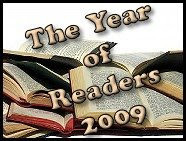I'm curious. I'm deeply concerned with encouraging literacy, and this idea sounds good to me from the rough description given in the article. Of course, the current program 'balanced literacy' also appeals to me. On a philosophical basis, 'balanced literacy' appeals to me more.
But I'm not the target audience. I've been a lifelong passionate reader, and I can thank my parents for that. I don't instinctively know how to make reading appeal to someone who is resistant to it, or struggling with it. Also, my understanding of 'cultural literacy,' that there are some things in our culture that one should know, and this will make it easier to function within our culture, makes sense to me. Certain common experiences are an important part of our culture, and they make our language richer, but if you don't have them, they can leave you confused. I really like how the Core Knowledge Foundation explains the theory in their FAQ.
"There is no incompatibility between teaching a core curriculum and adapting instruction to the needs of individual students. Moreover, even as we look to teachers to bring out the best in each child as a learner, we also ask them to recognize the needs of each child as part of a larger community. All communities require some common ground. The community of the classroom requires, in particular, that its members share some common knowledge, because this knowledge makes communication and progress in learning possible."
Still, I'm nervous about trying a new tack like this. If it's a success, then it's great for the kids who are doing it, but what if it's not? Those children will be further hampered in developing their reading skills. There are many people, from teachers and parents, up to principals and the schools chancellor, people far more qualified than I am on the subject, who will be devoting themselves to making sure that it works. I admire them. The risks are there, minimized, but if it works... If it works the benefits could be outstanding.

No comments:
Post a Comment